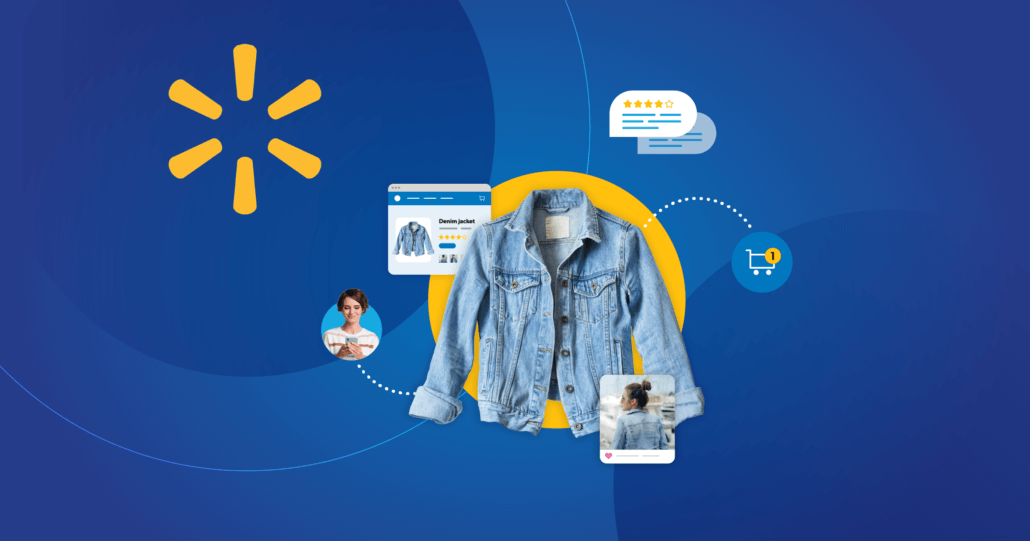September 26, 2024
Fraudulent content like fake reviews or social posts are a plague. A plague you need to combat if you want to protect your brand and earn customer loyalty. Today, user-generated content (UGC) such as ratings and reviews, and customer photos and videos, is absolutely essential for consumers to make educated purchasing decisions. In order for brands and retailers to be successful, you must help your consumers make smart purchasing decisions by earning and keeping their trust in online UGC.
With almost all shoppers using ratings and reviews (88%) to evaluate or learn more about products and more than half of shoppers saying they often discover a product or service through social media (54%), fake reviews are affecting their ability to confidently turn to UGC as a trusted source when making product purchasing decisions.
And preserving that trust isn’t just about maintaining your customer base and increasing sales. It’s also about maintaining regulatory compliance. Government agencies all over the world enforce consumer protection laws that prohibit unscrupulous marketing practices — including fake reviews or social media posts or attributes.
In the United States, the Federal Trade Commission (FTC) recently announced that it had finalized its new Rule on the Use of Consumer Reviews and Testimonials, The new rule takes effect October 13, 2024 and strengthens the agency’s ability to impose significant monetary penalties in cases involving fake and deceptive consumer reviews and social media attributes. This new rule builds upon the FTC’s updated Guides Concerning the Use of Endorsements and Testimonials in Advertising announced in July 2023. This was the first refresh of the Guides since 2009 and it provides new and updated guidance around endorsements by social media influencers as well as ratings and reviews.
The 2023 updated Guides tell you what the FTC considers to be illegal conduct in connection with endorsements, testimonials and reviews, while the new 2024 Rule gives the FTC new powers to enforce the law and clearly spells out which types of conduct the FTC considers to be the most egregious and the subject of enforcement. Taken together, these new rules put the world on notice that the FTC is taking this kind of conduct seriously and will go after those who engage in the worst kinds of false and deceptive behavior in connection with reviews and social media posts.
What does the new final FTC regulation say?
The new regulation from the FTC codifies their stance against this form of consumer deception and specifies significant new penalties for violations — up to $50,120 for each offending review to be imposed each time the review is viewed by a consumer. The aim is to ensure that consumers are provided with a more authentic, honest shopping experience and businesses are able to better protect their brand.
In its final rule, the FTC clearly addressed the widespread emergence of generative AI, which will make it easier for bad actors to create fake reviews and makes the introduction of this new rule of even greater importance.
In announcing the final rule, the FTC’s Chair said, “Fake reviews not only waste people’s time and money, but also pollute the marketplace and divert business away from honest competitors,” “By strengthening the FTC’s toolkit to fight deceptive advertising, the final rule will protect Americans from getting cheated, put businesses that unlawfully game the system on notice, and promote markets that are fair, honest, and competitive.”
The proposed new rule clarifies that businesses are prohibited from:
- Selling or obtaining fake consumer reviews and testimonials. Writing or selling reviews by someone who doesn’t exist or has never bought the product
- Buying positive or negative reviews. Providing compensation conditioned on the writing of consumer reviews expressing a particular sentiment, either positive or negative
- Illegally suppressing negative reviews. Using unjustified legal threats, other intimidation, or false accusations to prevent or remove a negative consumer review or hiding a negative review from the website
- Using “insider” reviews. Having employees or other insiders write reviews or testimonials of its products or services, without clearly disclosing their relationships
- Selling or buying fake social media indicators. Selling false indicators of social media influence, like fake followers or views
- Fake websites. Creating or controlling a website that claims to provide independent opinions about a category of products or services that includes its own products or services
The FTC also clarified that while review hijacking is not included in its final rule, that this practice is still illegal and enforceable under separate Guides.
As the champions of authentic shopping experiences, we at Bazaarvoice fully agree with this rule and already provide our customers with powerful tools and processes to help them comply. This is simply another strong and welcomed step to help protect brands and the sanctity of consumer reviews and social media posts and the role they play in commerce.
We understand that the problem and regulation of fake reviews is not limited to the U.S. Other countries are also tackling the issue with laws such as the EU’s Omnibus Directive and the UK’s DMCC Act and we encourage all Bazaarvoice customers to adhere to these principles articulated in these laws and the FTC’s new Rule even if their country hasn’t yet introduced similar legislation.
3 ways to protect your brand
Whether you’re in the US or another country, here’s the three golden rules we instruct our clients and partners to follow, to ensure they protect their brand, and their bottom line, from fake reviews.
1. Be transparent about who you collect reviews from, and how you do it
While consumers continue to trust reviews, they’re increasingly on the lookout for any signs of untrustworthy content. Typically, the behaviors that causes the most suspicion among consumers are:
- Multiple reviews with similar wording on the same product (55%)
- Review content not matching the product (49%)
- Bad grammar/spelling mistakes (36%)
- An overwhelming amount of five star/positive reviews (35%)
Consumers have a right to trust the reviews they encounter and businesses have a responsibility to ensure this content is legitimate. The importance of this trust is further echoed in the guidance being put out by governments and consumer agencies around the world, echoed by the proposed FTC regulation.
There’s a variety of ways businesses can ask customers to provide a review — review request emails, directly from e-commerce sites, sampling campaigns, or in a social media campaign. Additionally, brands may choose to share the reviews they collect with their retail partners so that consumers can find them anywhere they’re looking to make a purchasing decision.
Regardless of how a review is collected, brands should never ask for or incentivize positive reviews. If consumers are offered a free product, promotional material (such as discounts or coupons), or a chance to win something of value in exchange for providing an unbiased review, then we recommend adding descriptors such as “this reviewer received a free product in exchange for their honest feedback” to any reviews collected using a promotion.
2. Don’t screen out negative reviews — find value in them
While some might think that negative reviews are an absolute disaster for their brand, they’re actually a necessity for your ratings and reviews program to thrive. In a survey we ran, over half (60%) of respondents said that negative reviews are as important as positive reviews in their decision to buy a product. The majority claimed that negative reviews contain more detailed info on product pros and cons, while 32% think that they are less likely to be fake reviews.
In addition to giving consumers a true feel for a product or service, negative reviews are an opportunity for engaging with consumers and identifying potential product improvements.
Responding to, and taking action on, negative feedback will protect your brand by fostering trust and loyalty with customers.
3. Have a zero tolerance policy for fake reviews
Not protecting yourself against fake reviews undoubtedly puts your brand at risk. In the same research as above, respondents said that fraudulent reviews from a brand’s employees (42%) and from other customers (34%) would cause them to lose trust in a brand.
We also found that after losing trust in a brand, a vast majority (82%) of consumers would avoid using the brand ever again. If shoppers suspect a product to have fake reviews:
- 36% wouldn’t buy the product
- 28% wouldn’t trust the brand,
- 27% wouldn’t trust the site’s other reviews
- 25% wouldn’t purchase from the website
- 18% said ‘all of the above’
Companies should be aware of the possibility of fraudulent content through a variety of means, including disruptive or trolling activity, commercial messages, generative AI submissions, illegitimate or degrading content by a competitor, and self-promotion by employees.
We help protect our clients from a variety of different types of fraud. Using textual moderation and data driven, anti-fraud processes to evaluate reviews in the Bazaarvoice Network helps us to protect our clients and their shoppers.
Our biggest and best piece of advice to protect your brand is to ensure you have a process in place to detect fake reviews, and to not allow them to be posted on your site. Hiring a third-party ratings and reviews provider and moderator is a huge help for this task.
Protect your brand now
User-generated content is necessary in commerce today. But a reputation for fake reviews will damage your brand reputation as well as your bottom line. Brands and retailers need to continuously and proactively work to combat fake reviews by ensuring they have the right processes in place to protect themselves and their shoppers.
The steps we’ve outlined above, as well as the new guidance and proposed regulation from the FTC, will help you achieve this.
When shoppers can turn to ratings and reviews as sources of truth, it helps them to feel confident in purchasing from your company. Which boosts your bottom line and who doesn’t want that?
Learn more at Bazaarvoice.com/fakereviews.










